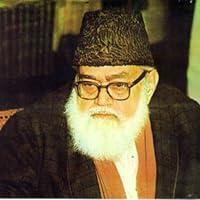
Abul A'la Maududi
关于作者
Abul A'la Maududi was a prominent Islamic philosopher, theologian, and political leader in the 20th century. Born in 1903 in Amarkot, British India, he played a pivotal role in the revival of Islamic thought and the establishment of an Islamic state. Maududi founded the Jamaat-e-Islami party in 1941, which aimed to implement Islamic principles in governance and society. His writings, including works like "Human Rights in Islam" and "Towards Understanding Islam", sought to articulate a vision of Islam that was relevant to contemporary issues while remaining rooted in traditional beliefs.
Maududi's influence extended beyond the Indian subcontinent, impacting Islamic movements worldwide. He emphasized the importance of a comprehensive Islamic way of life that encompassed personal, social, and political dimensions. His ideas fostered a sense of identity among Muslims facing modernity, and his thoughts continue to resonate in various Islamic organizations today. Through his extensive writings and speeches, Maududi has left a lasting legacy in Islamic political thought, advocating for a revivalist approach to Islam that seeks to address the challenges of modern society.